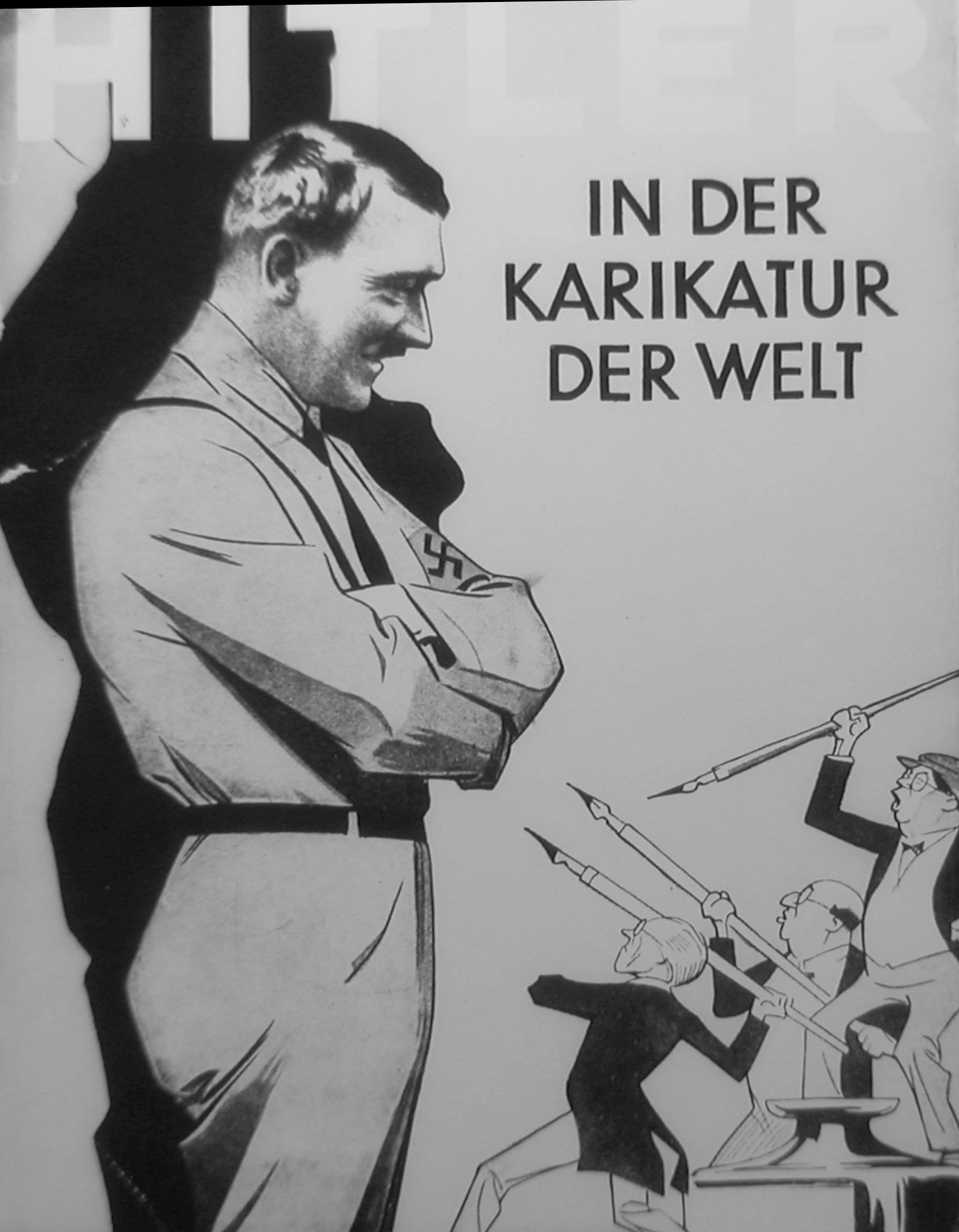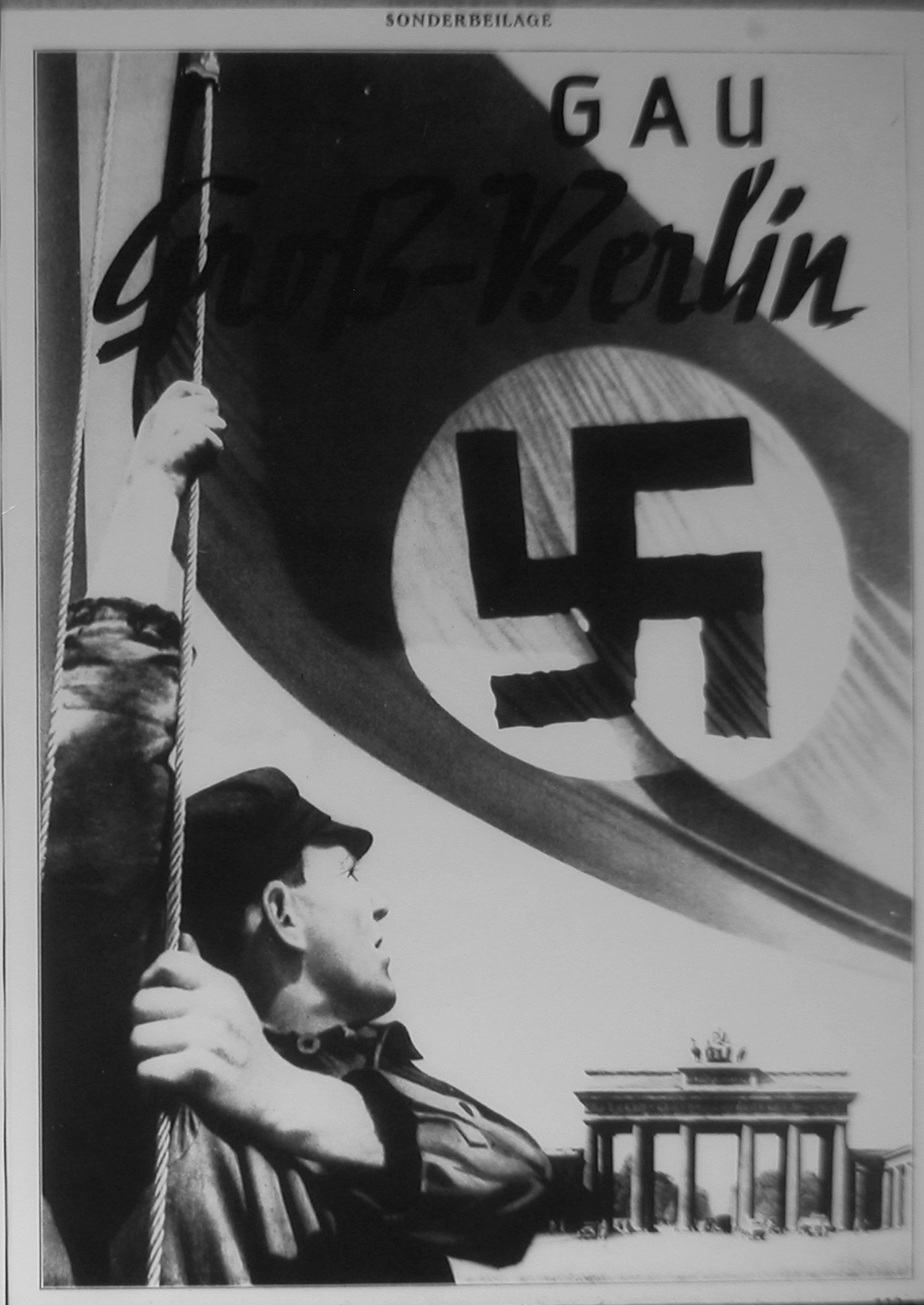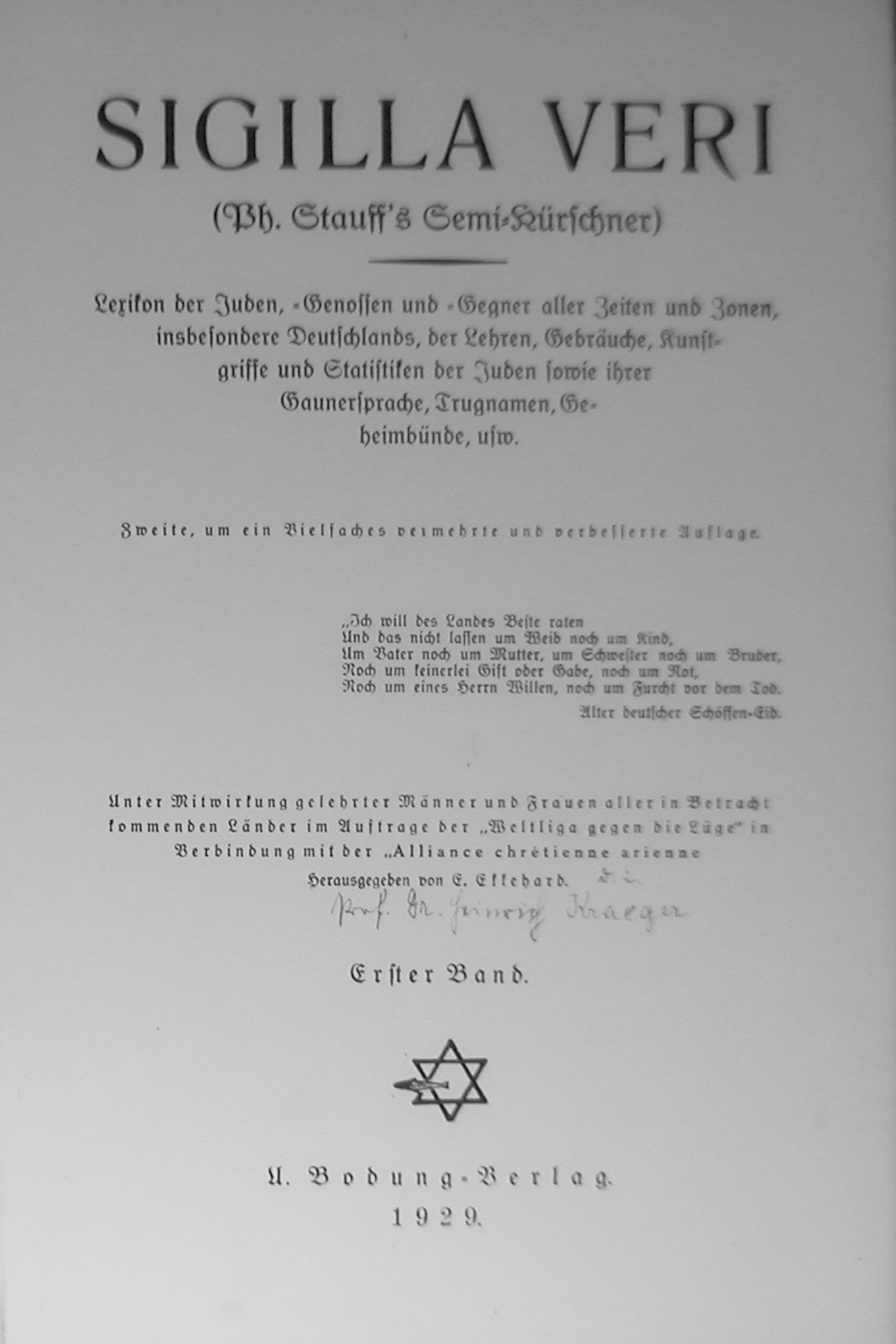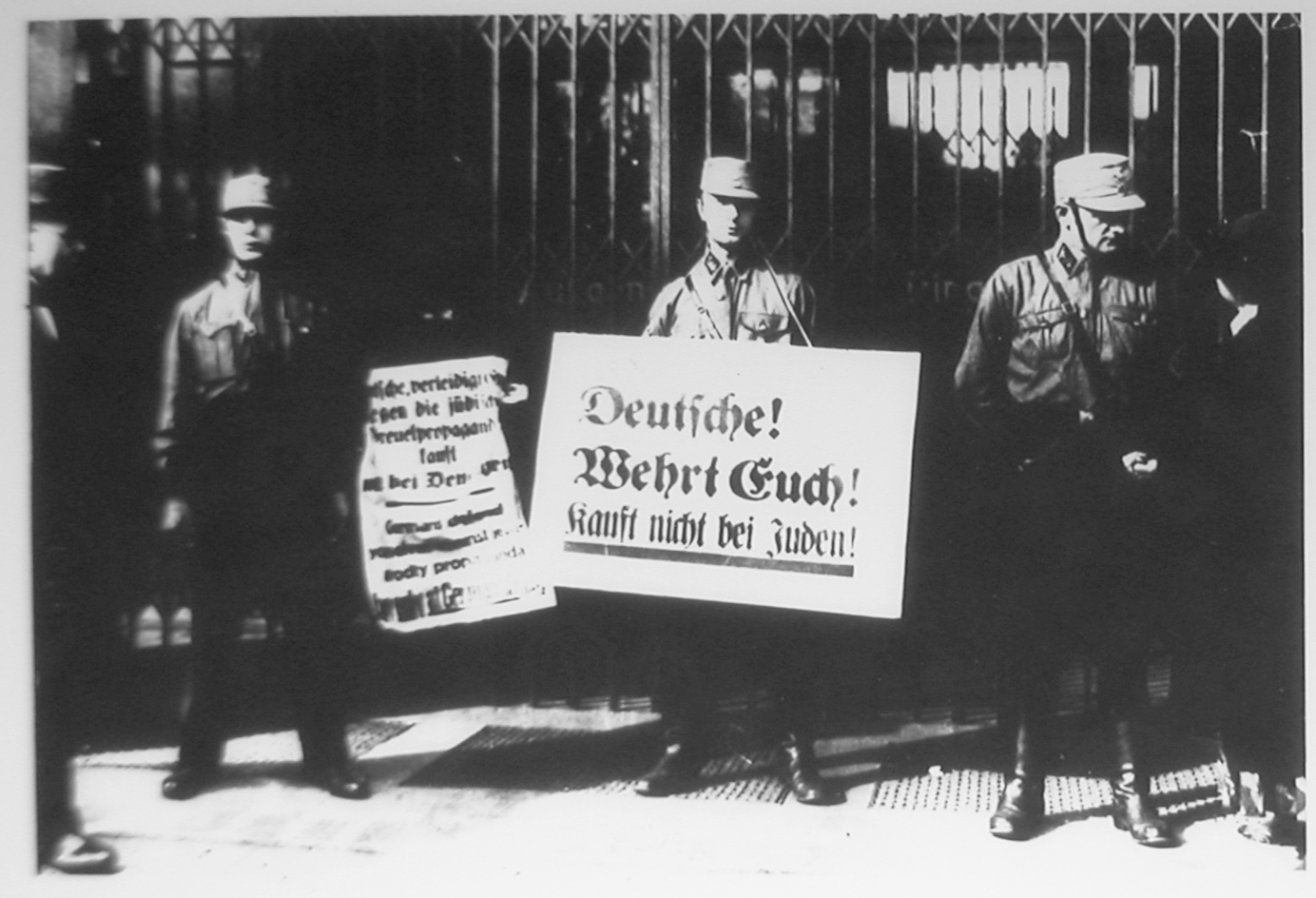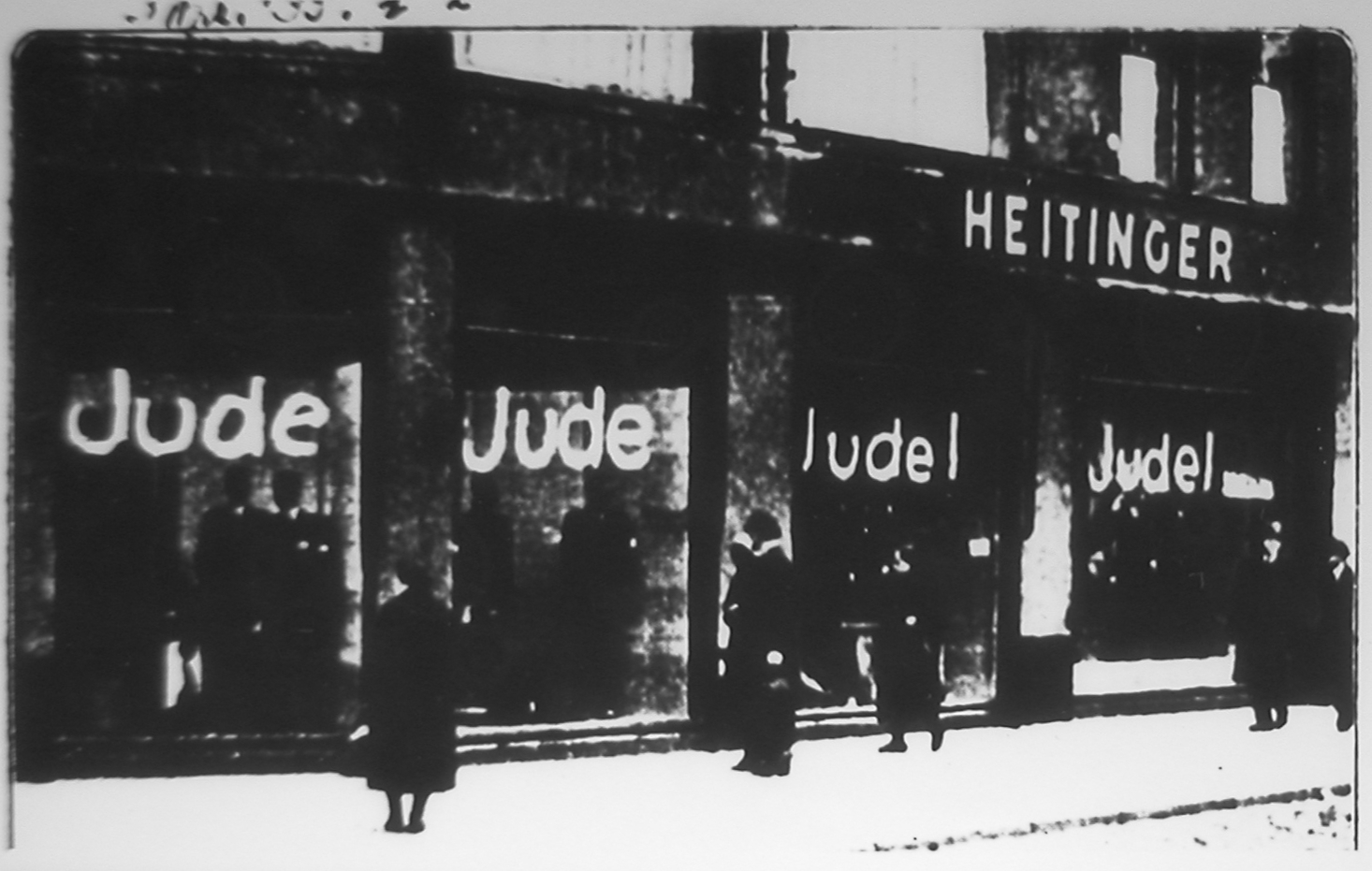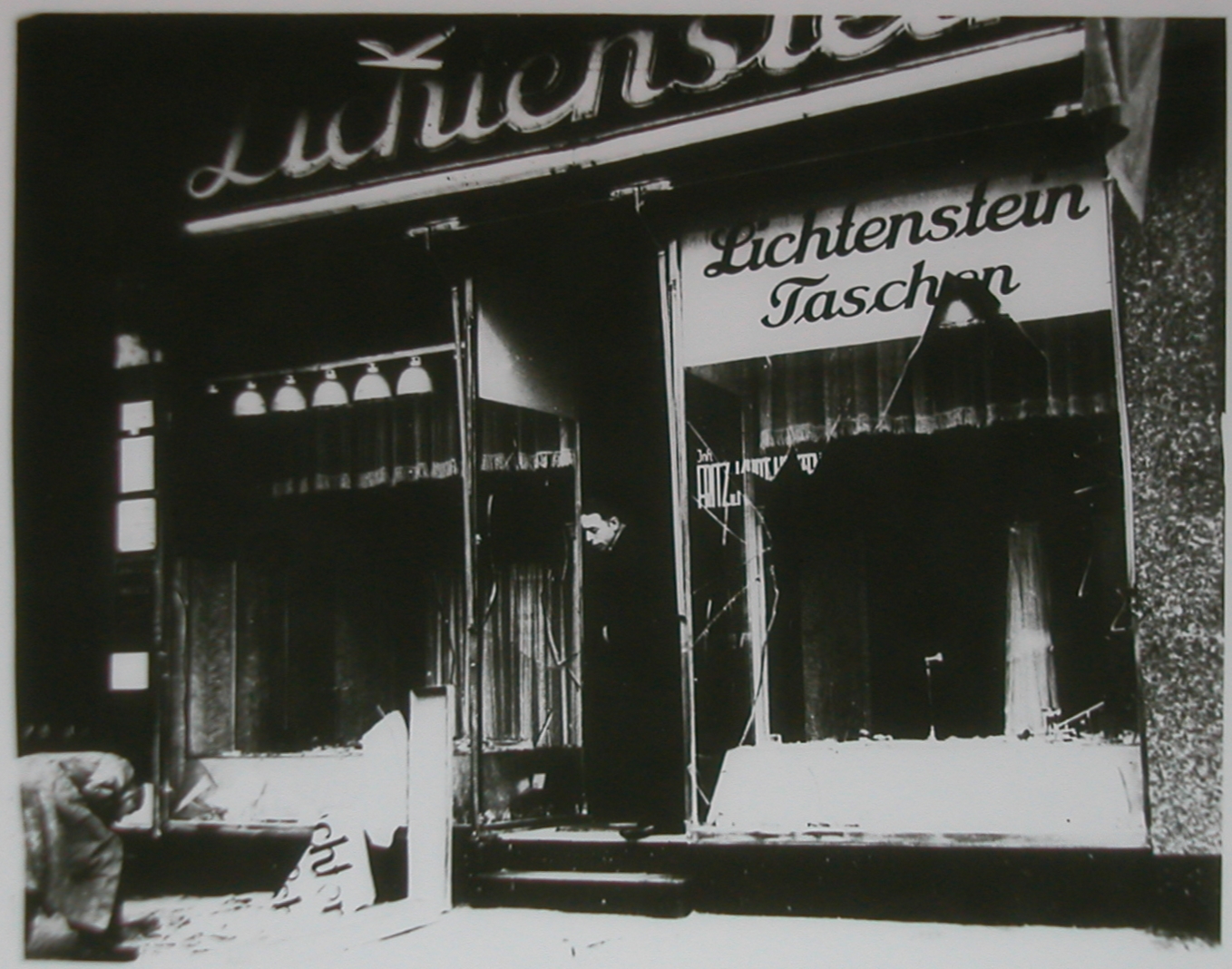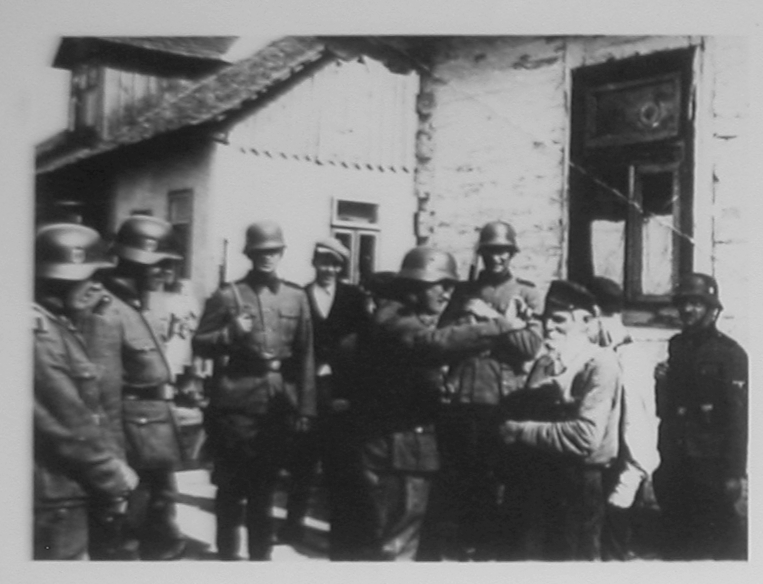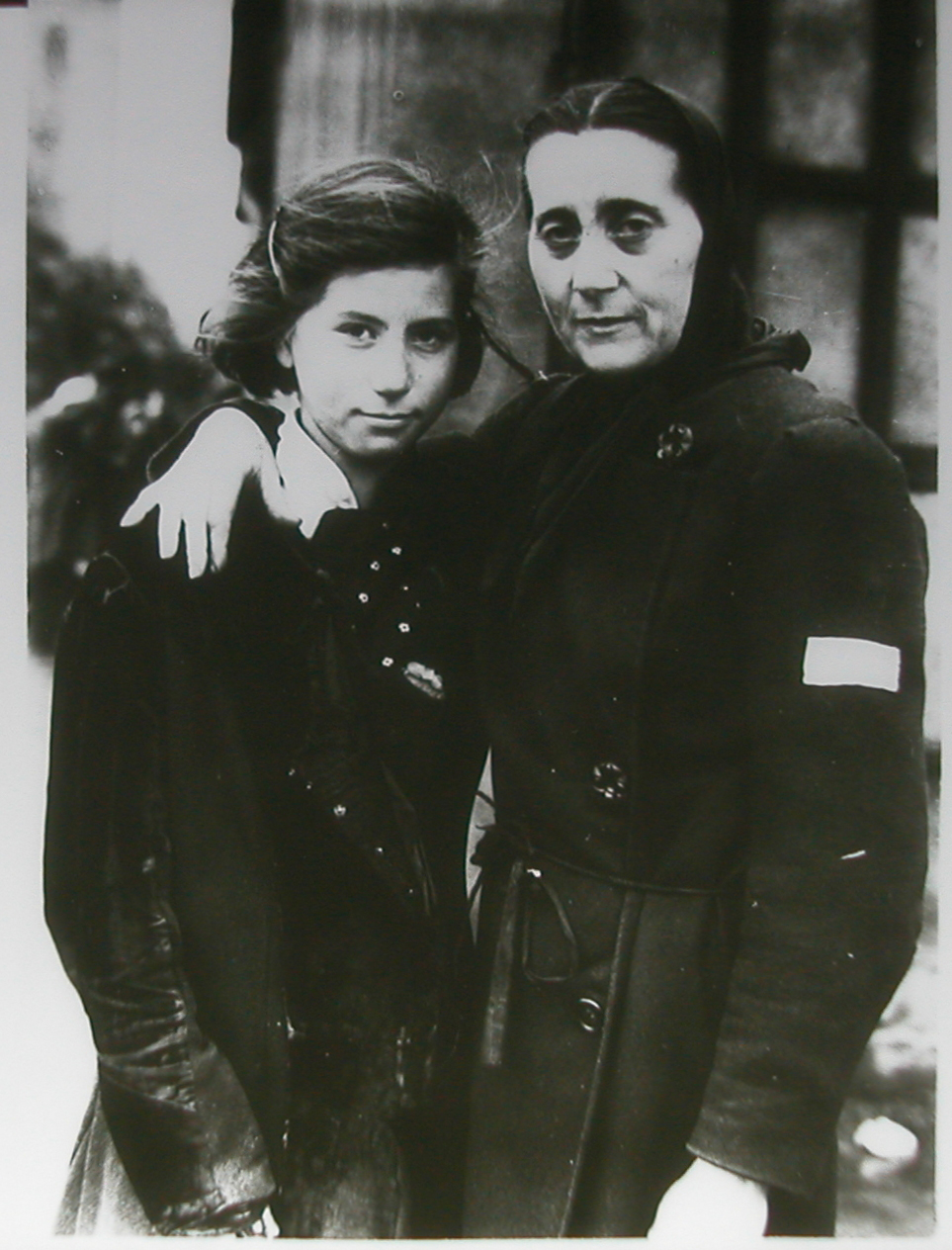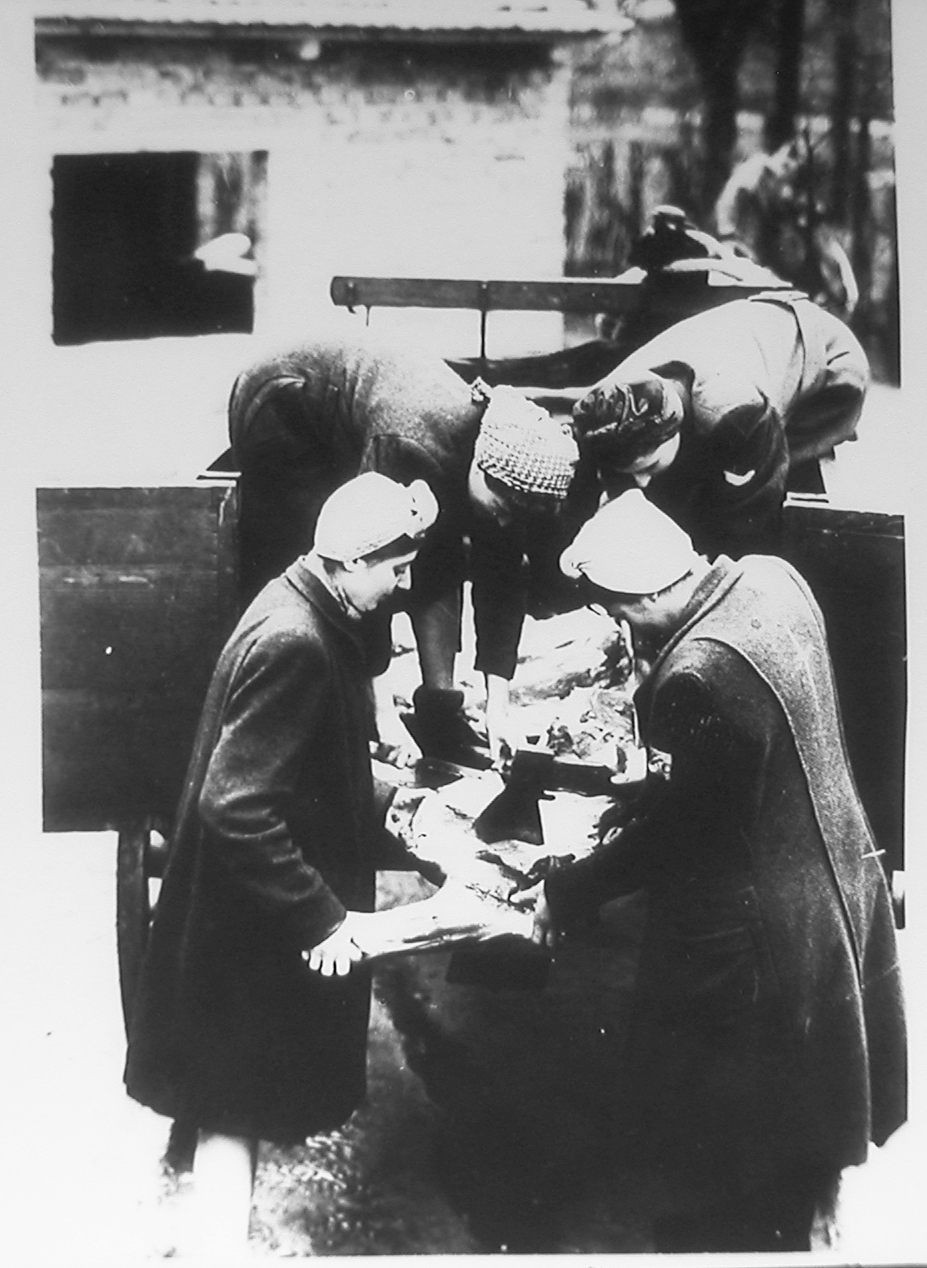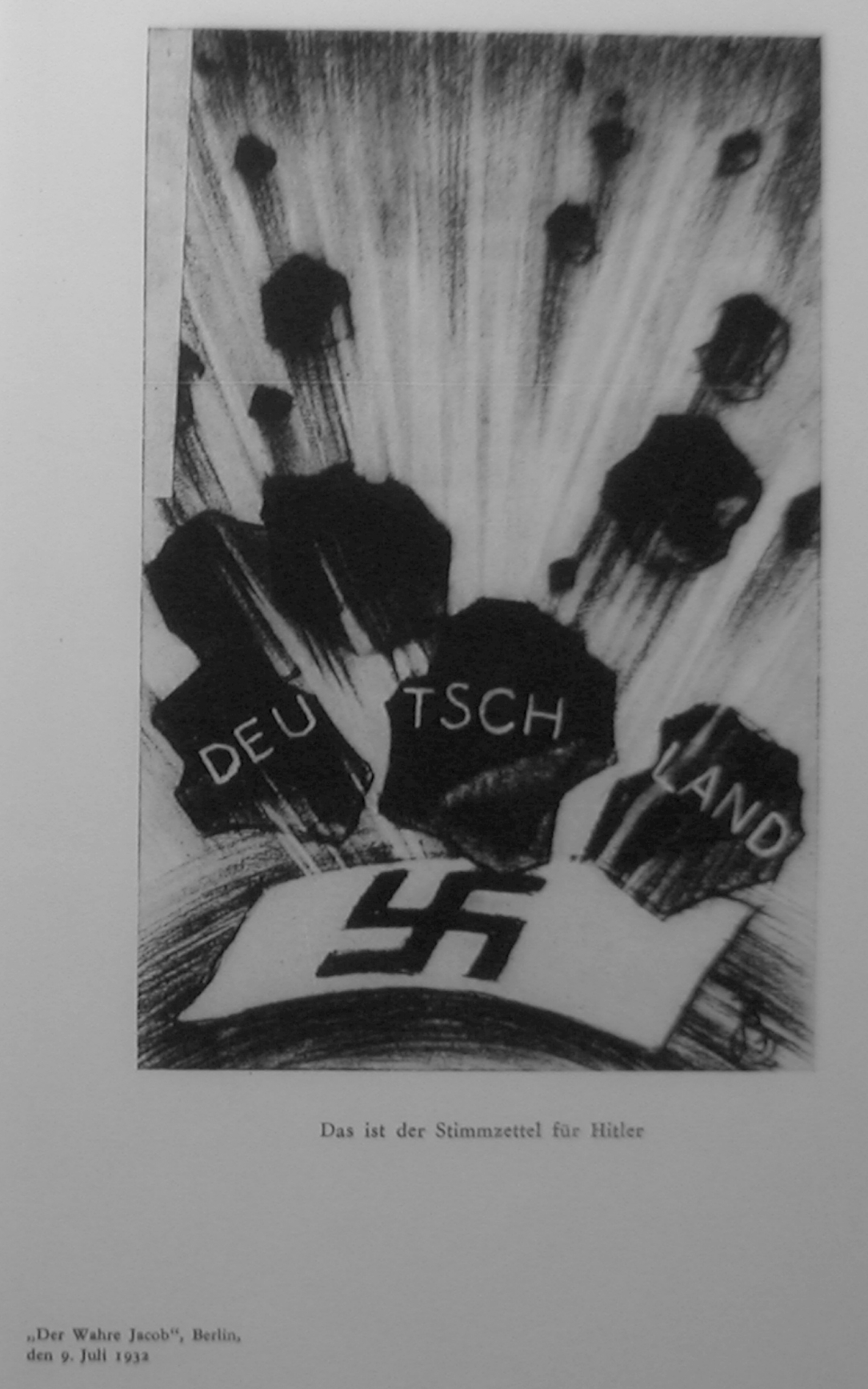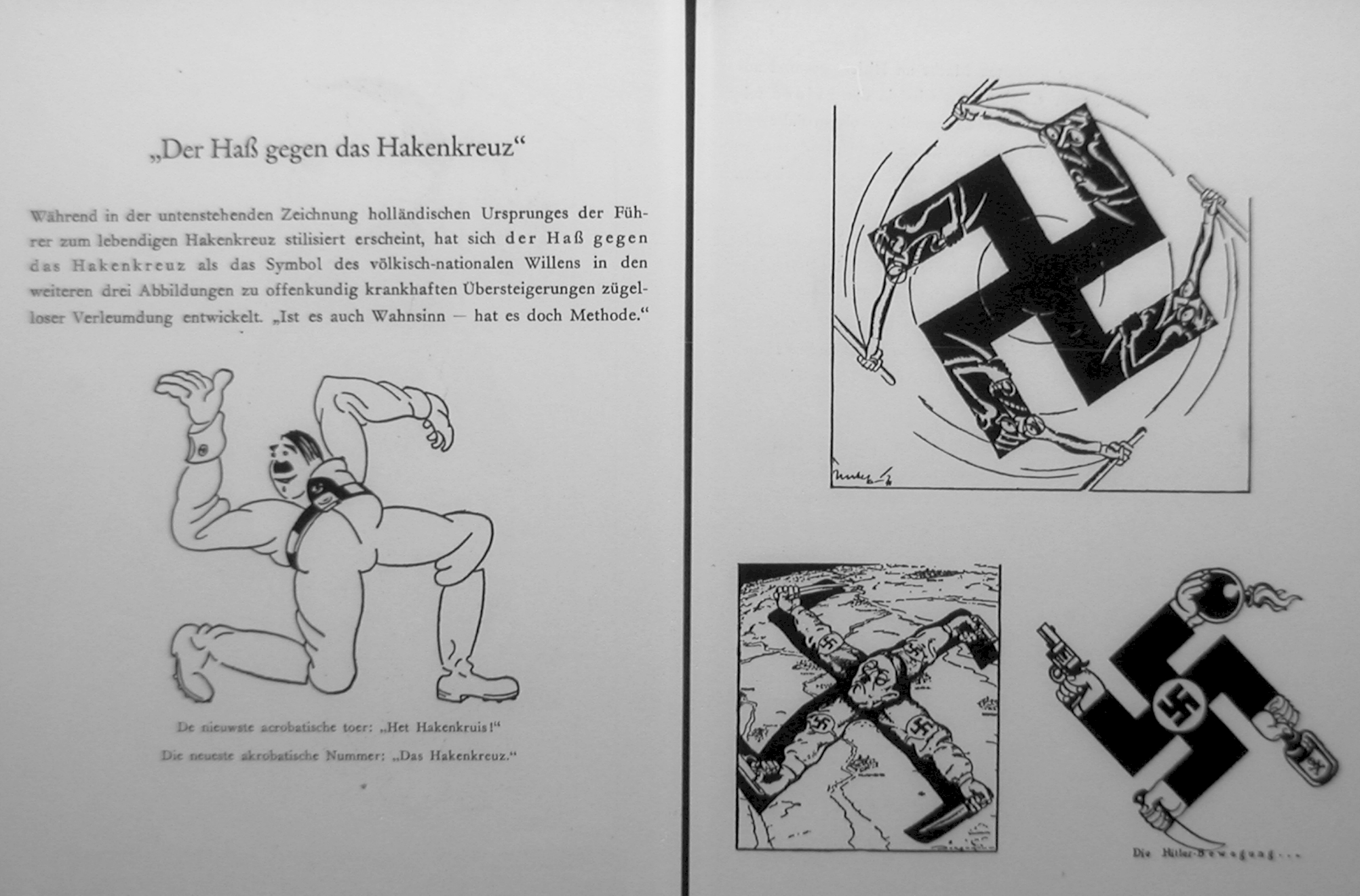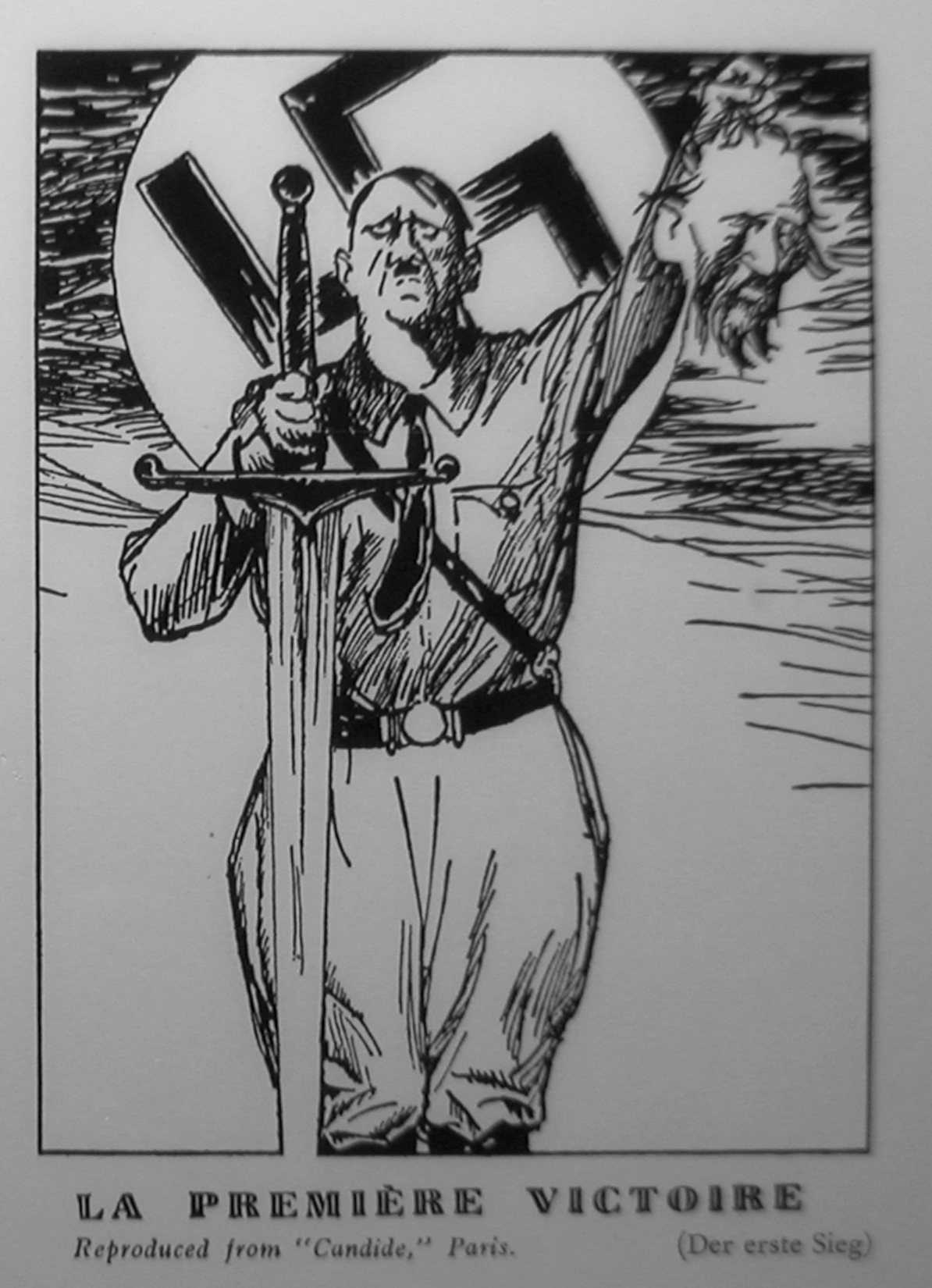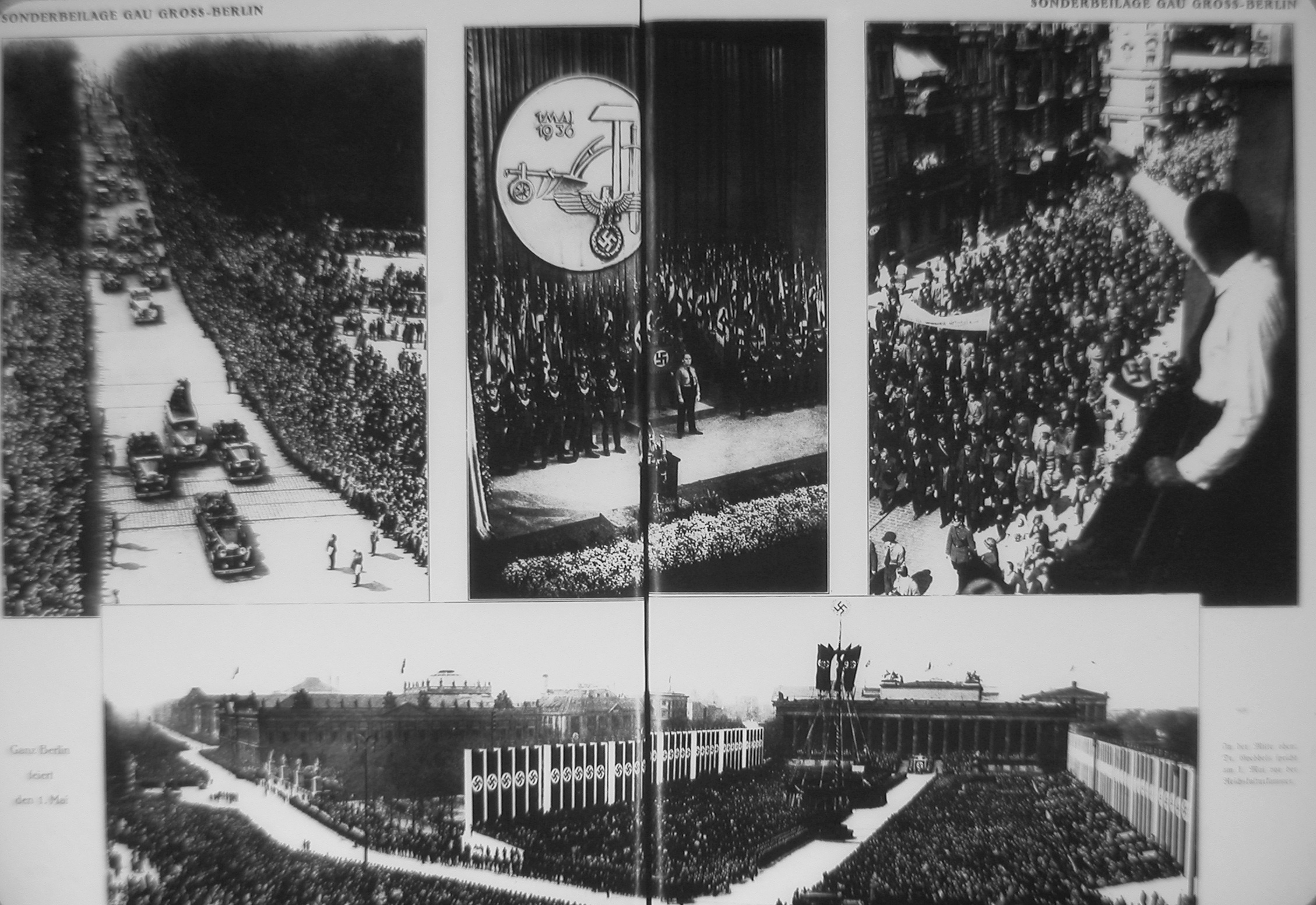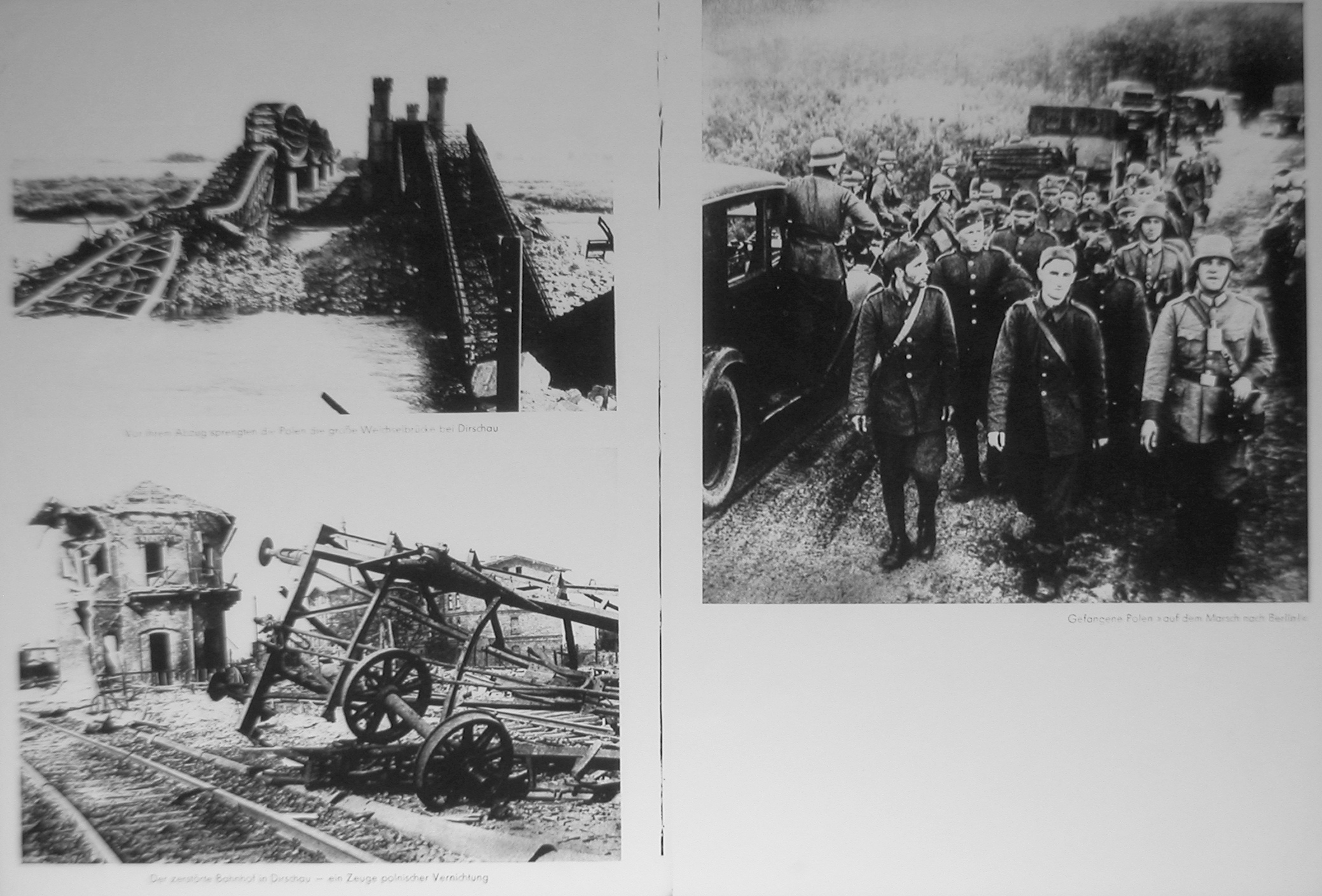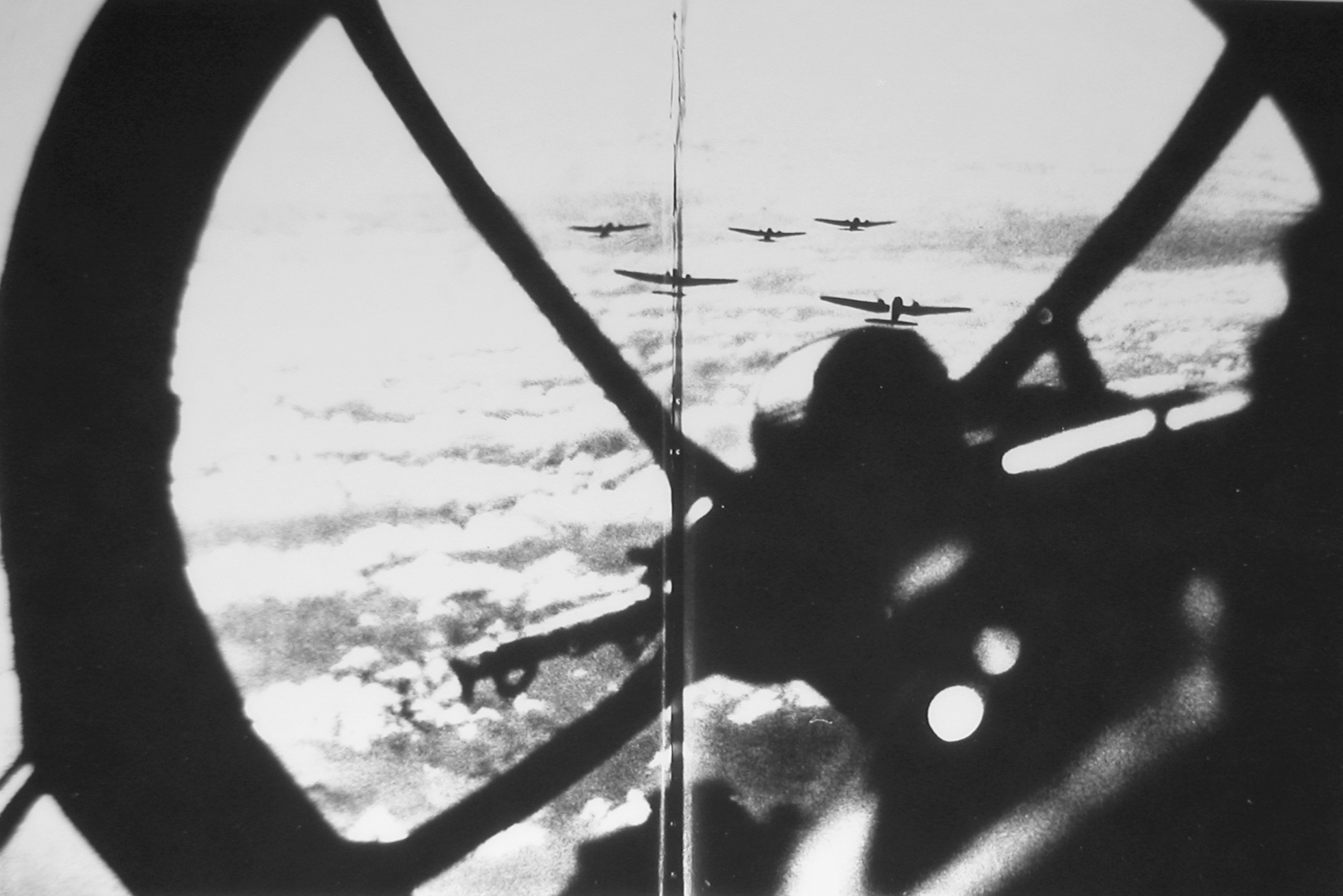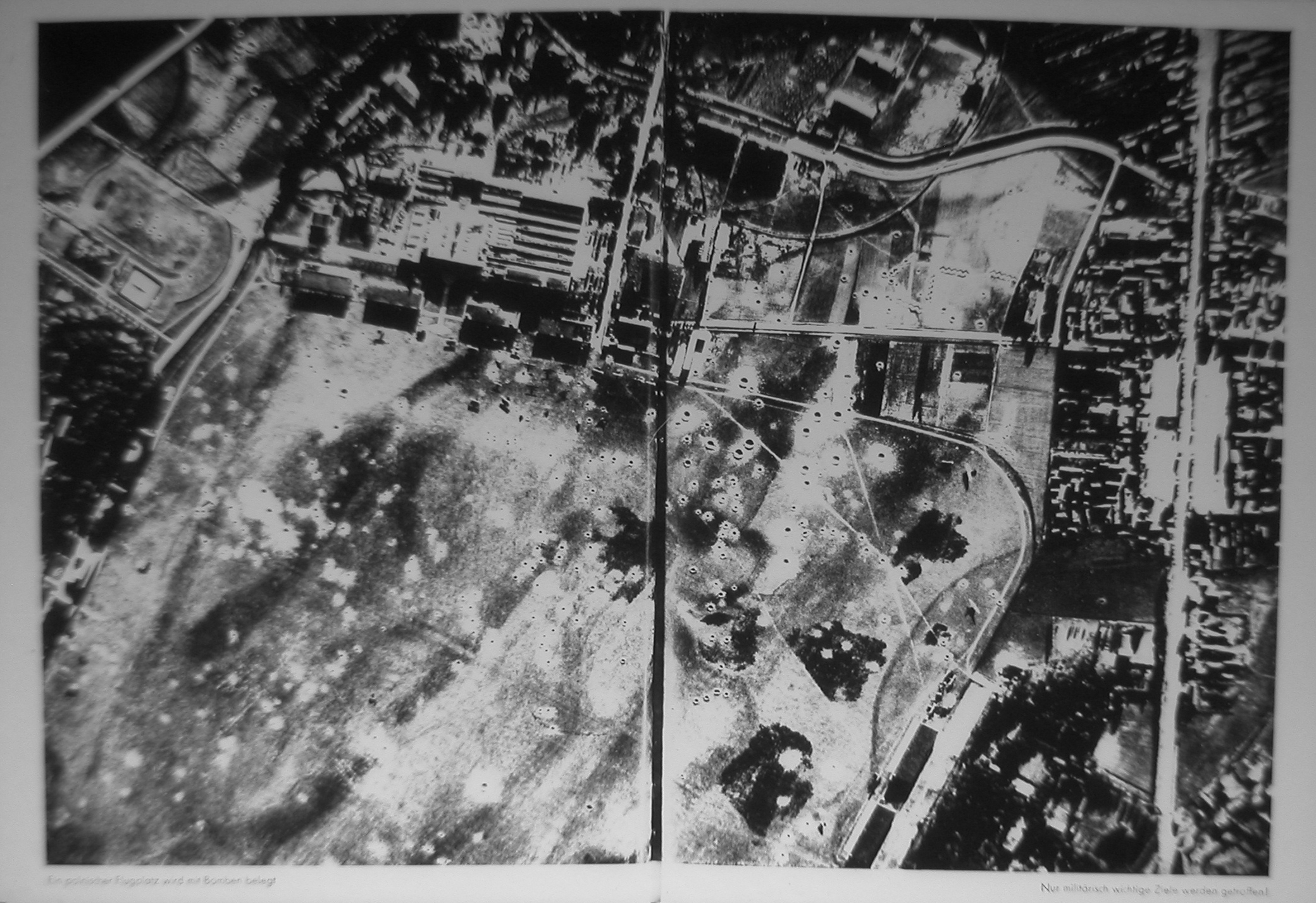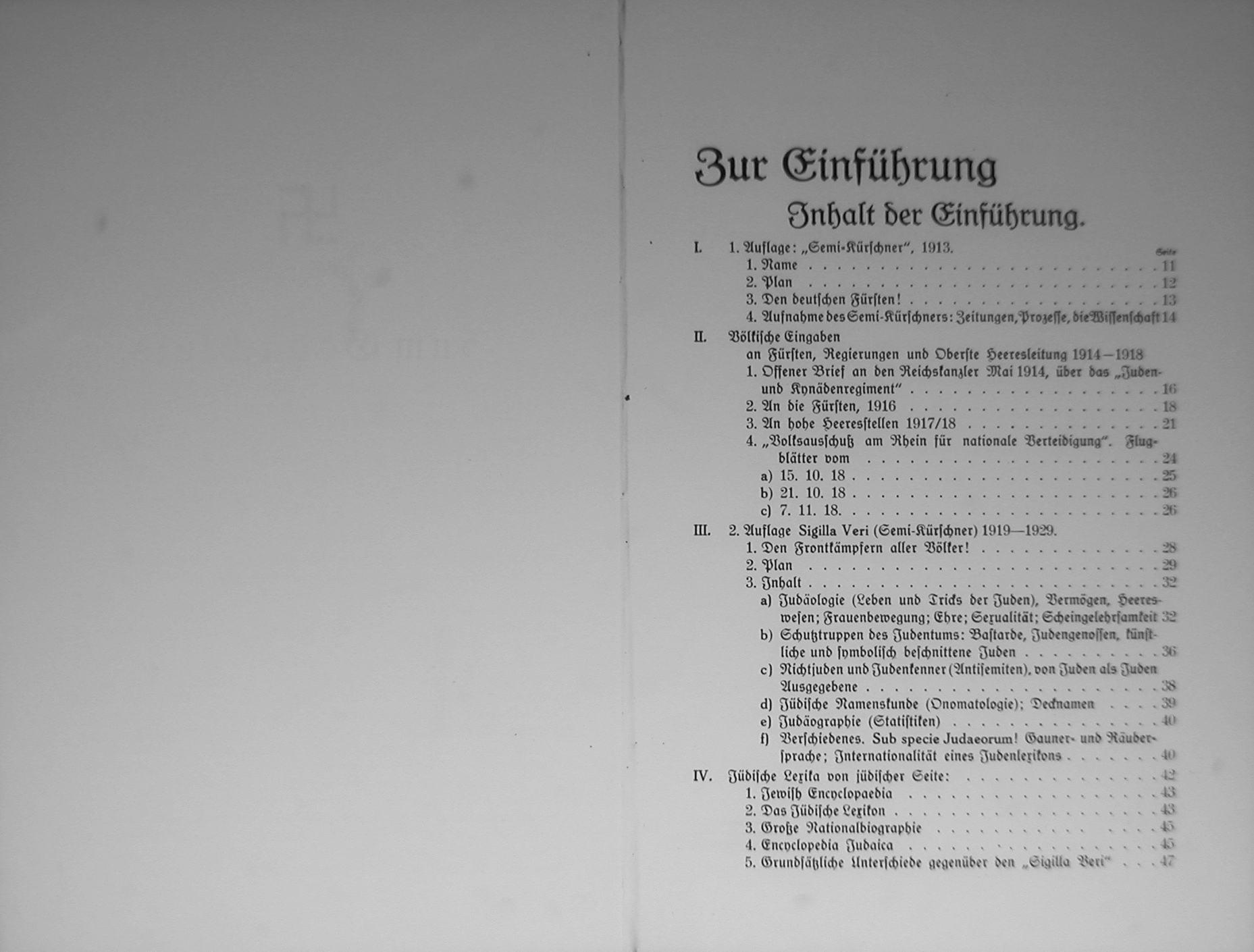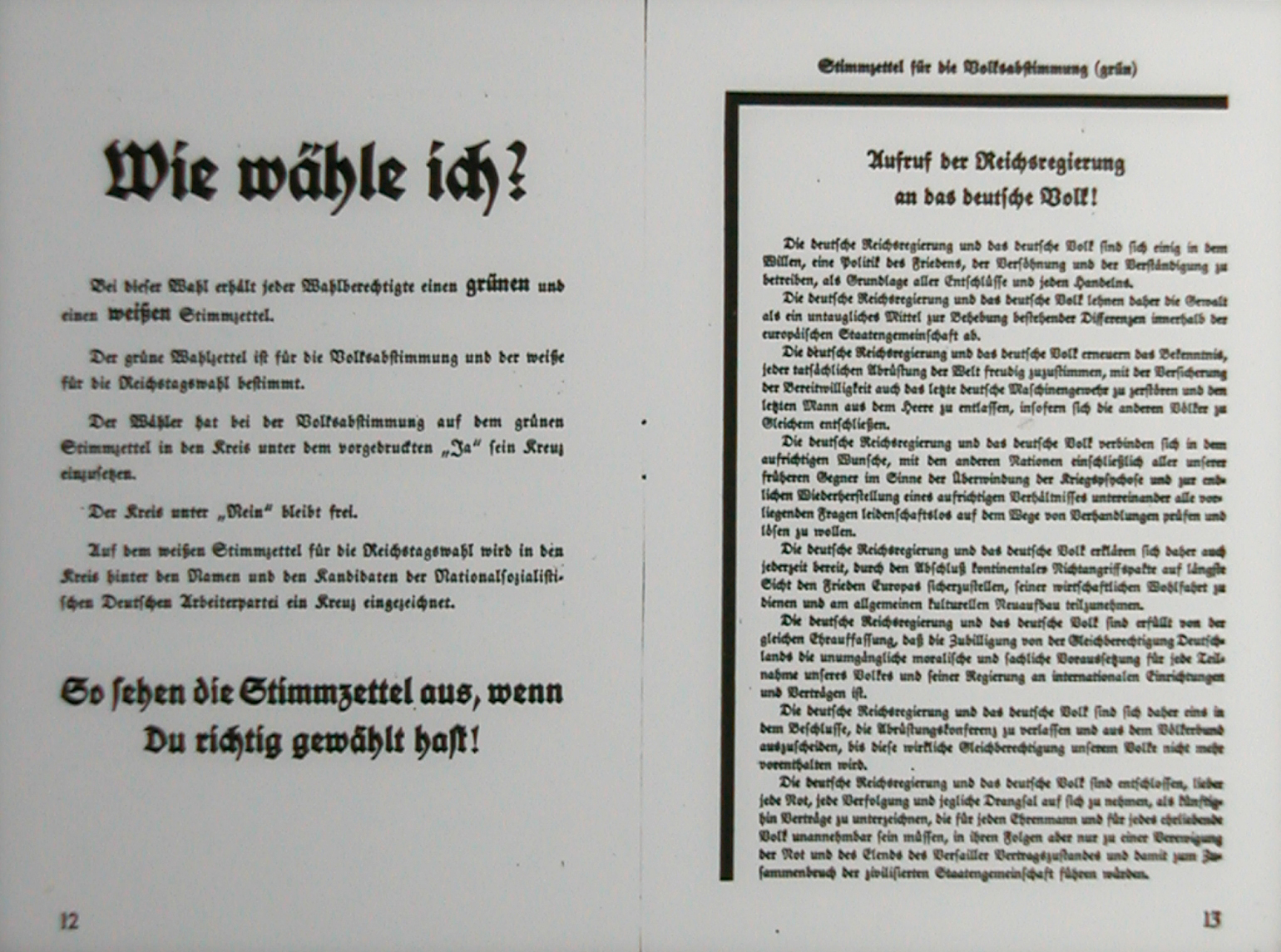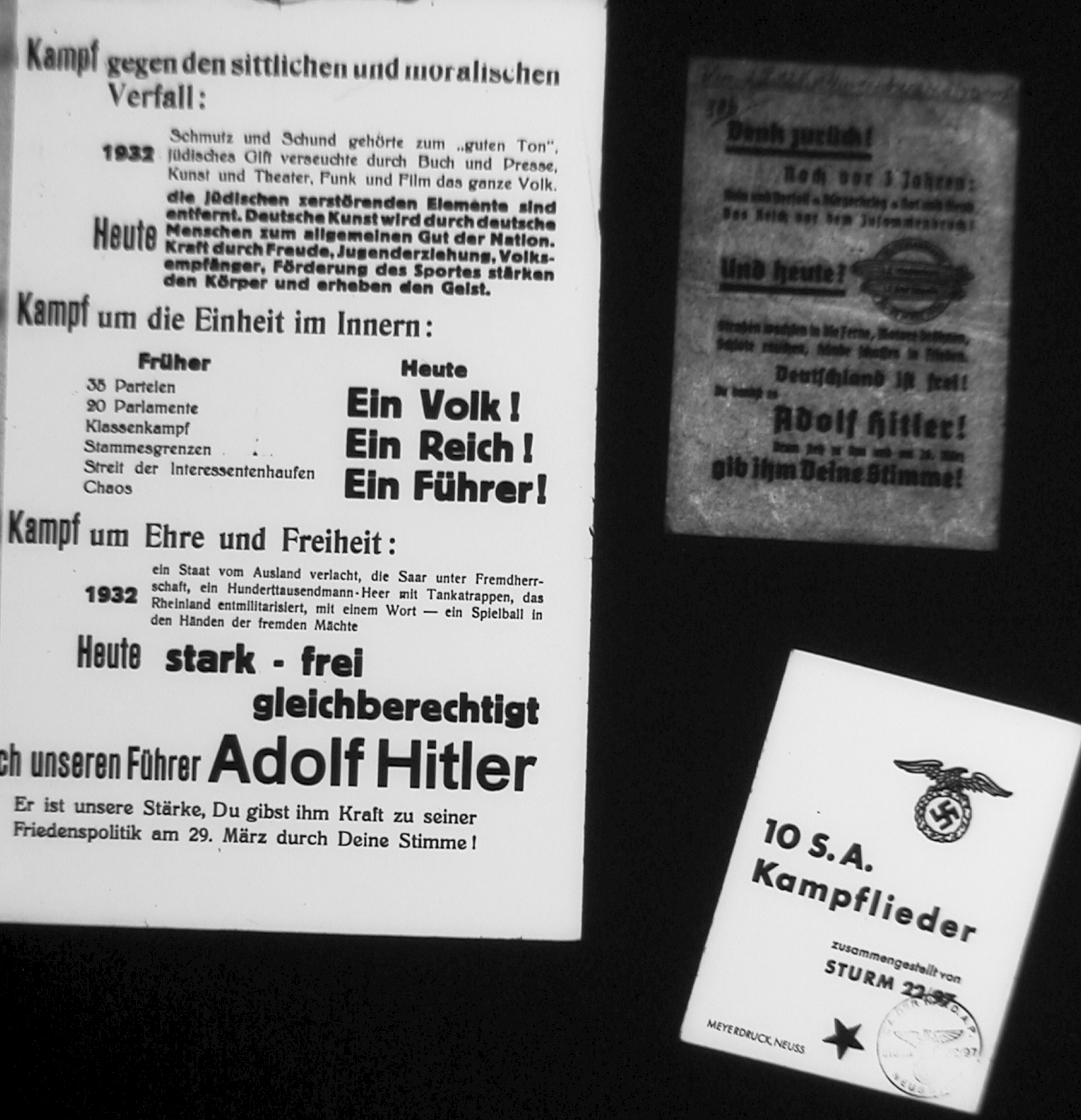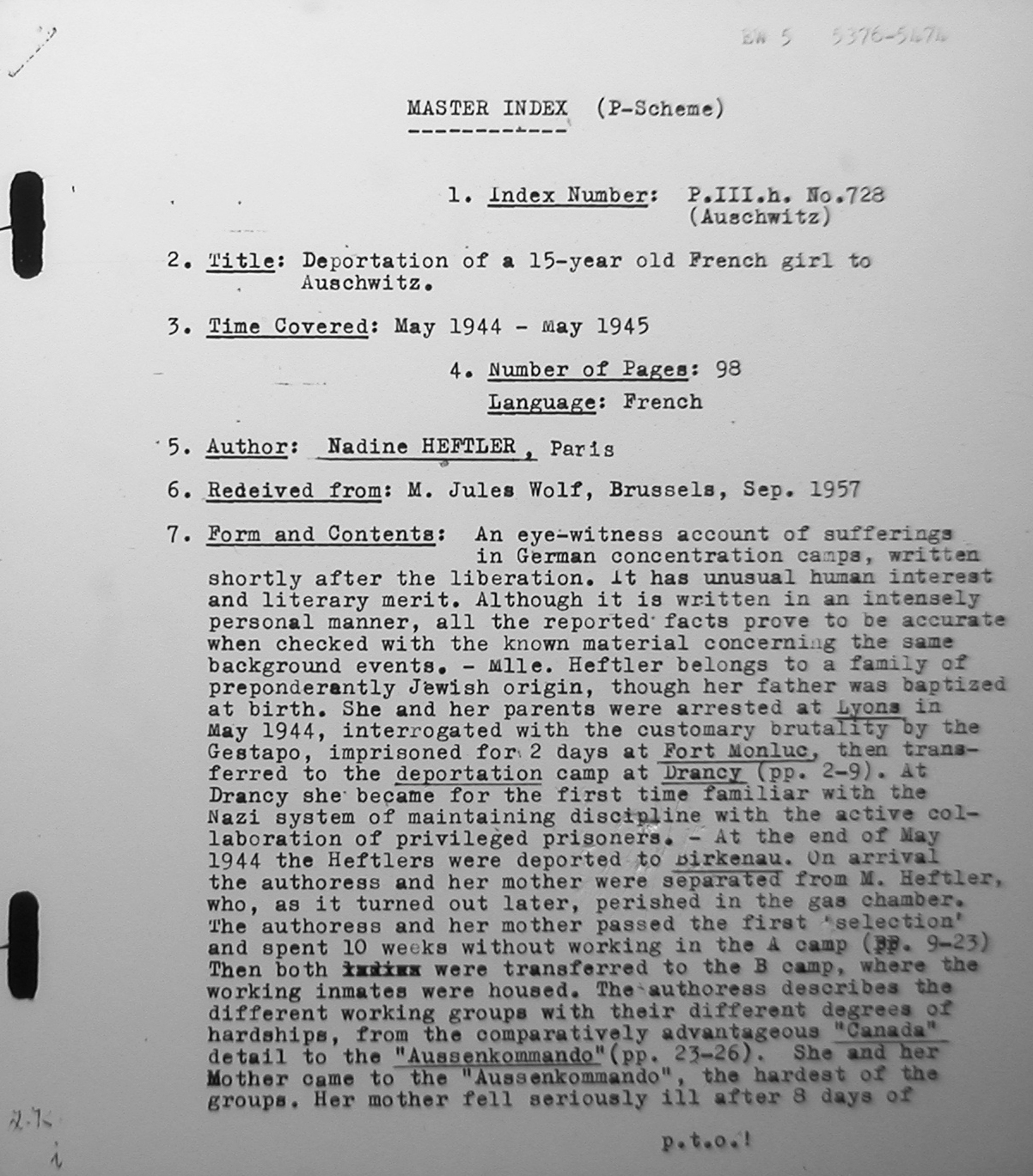The Wiener Library in London is the world's oldest Holocaust memorial institution. It documents the history of the Nazi movement, crimes against the Jewish people, and the history of European Jewry. OSA holds a copy of the collection “Testaments to the Holocaust: Documents of The Wiener Library (London) on microfilm,” which consists of microfilmed library materials, thematic press cuttings, biographical files, photo collection, personal reports and interviews.
Finding aids prepared and made available by Primary Source Media:
-
Series 1: Archives of the Wiener Library, London. Materials are grouped into Propaganda materials; Eyewitness accounts; Wiener Library publications; and Photographs. | PDF
-
Series 2: Thematic Press Cuttings Collection, 1933-1945. Materials are grouped into Germany, 1933-1939; Countries outside Germany, 1933-1939; The Jews in Nazi Germany, 1933-1939; Nazi Germany, 1933-1939; Wartime period 1939-1945; and Jews in World War II. PDF
-
Series 3: Henriques Archive. This collection comprises the working papers of Rose Henriques from 1945 to 1950, and offers extraordinary insights into the life of Jewish Holocaust survivors and their first steps back into life and community. | PDF
Alfred Wiener, founder of the Library
Alfred Wiener in his office. London, c1950.The library was named after its founder, Alfred Wiener, who was a German Jew. He was born in Potsdam in 1885, studied Arabic language and literature, got his doctorate in Arabic literature. He lived and travelled for three years in the Middle East. He served as an officer in the First World War, and was decorated with the Iron Cross, 2 nd class. He joined the largest Jewish civil rights organization, and within a few years he had risen to a very high position and took part in designing its policy. He had no doubts that the greatest danger came from Hitler's National Socialists.
In 1928 he set up an office to collect all available information about the Nazi Party, its leaders and activities. The office was called Büro Wilhelmstrasse, after the main street in Berlin's government district. He and his colleagues collected newspapers, journals, pamphlets, leaflets, ephemeral material produced by or related to the Nazis. They used the collection as the basis for campaigns against the Nazis.
With Hitler's accession to power in January 1933, the Büro was closed down. For Wiener this was a personal crisis, he suffered a sort of nervous collapse. He moved with his family to Amsterdam, set up another office, the Jewish Central Information Office, with the same task. By 1939 it became clear that their days in Amsterdam were numbered. He went to London, moved the office and its papers there.
The London office was opened on 1 September, 1939 – the very same day the Second World War broke out.
His family and several members of the staff remained in Amsterdam. After the German invasion they were arrested and deported to Bergen-Belsen. His colleagues died there, his wife and children were freed in a prisoner exchange, but his wife was so weak that she died after crossing the border to Switzerland.
During the war the Office in London supplied information to government departments, the Ministry of Information, the intelligence services, and the BBC. They issued two periodicals, "The Nazis at War" and "Jewish News." After the war the office was renamed after its founder. The organization assisted the prosecution of war criminals by handing over a vast amount of accumulated documents to the Nuremberg International War Crimes Tribunal. The Wiener Library helped individuals with restitution claims – for many years the Library had a lawyer on its staff –, and in the 50s-60s collected eyewitness accounts about the Holocaust.
Alfred Wiener died in 1964. His Library ever since serves as a research and documentation center.
Recommended literature: Ben Barkow, Alfred Wiener and the Making of the Holocaust Library. London, 1997. OSA Library call number: Ref. 026/.940318.092 ALF
Selected documents
Selected photographs


